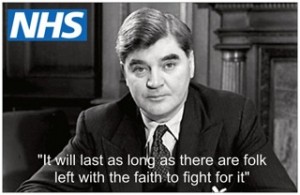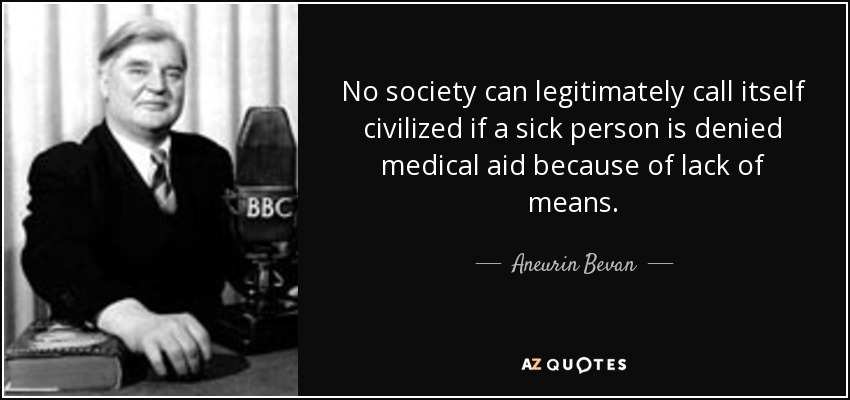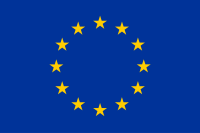
My Father and Mother were born in 1900 and 1902 respectively, so their ages always kept more or less in step with the year. My Father did not arrive until the middle of September in 1900 so he just missed being called up in the last year of the Great War – but he was already in a Cadet Unit by that time. So having got through the War, they then got through the post war depressions, the General Strike of 1926 (in which my Father was a ‘scab’ !), then the Great Depression, usually known as “the Slump” in our house, and my Mother was wont to say during World War Two, that in the late 1930s ‘things were just beginning to improve’ and she cited various things (which I have now forgotten) that had begun to reappear as we approached 1939.
The War, of course, threw everything out of gear again, but there were thinkers and politicians who continued to look forward even in the worst years of the War, so that the Beveridge Report came out in 1942, and in 1944 the new Education Act pleased my parents no end, because it meant I could go into secondary education without paying fees. In the early years of the War I was very ill with Scarlet Fever, immediately followed by German Measles, then middle ear infections which required a double mastoid operation. All of the Doctor’s bills and my lengthy hospitalisation must have got paid somehow, but my parents never mentioned it, and never said anything at any time thereafter, so I am completely in the dark about it.
This slow continuation of the pre-war recovery came to the for as the War drew to a close. There was a sort of “now we can get on and fix things properly for good” spirit, hope drove things ahead, and this was I think why there was such a big swing to Labour in the 1945 General Election – shocking to those of us who were very fond of Winston Churchill and his wartime leadership, but nevertheless a good thing seen in retrospect – and under Clement Attlee a good many hoped for things did come about along with others which were a bit more controversial and did not last. One of these ‘good things’ was undoubtedly the introduction of the National Health Service – a tremendous advance for much of the population who either paid outright for the Doctor, or paid into some scheme or insurance in the good times to tide them over in the bad ones.
Another step forward seemed to take place with the Schumann Declaration in 1950. At last it seemed that something was happening, coming out of Europe itself, to avoid the squabbles that had led to two ghastly World Wars in a period, first to last, of 31 years with sundry minor wars also in the same time period.
As time has gone by, that generation has gone to its grave, and even the younger ones as I was then cannot be around much longer. Someone born when Japan surrendered would now be well over 77 years old, so that most of the population living today know only of the events of the first half of the 20th Century via bits of old news reels, fictional war films and hysterical accounts in the media on various anniversaries, such as that of ‘D-Day’.
Our politicians too, are of this breed and so they do not know, understand or appreciate what those post war advances meant to the wartime survivors, and they see no reason why they should not be modified or done away with. Decisions are made on the basis of expediency or political popularity, with no sense of moral obligation to those who preceded them.

Aneurin Bevan, to whom fell the task of introducing the NHS in 1946 said, “No society can legitimately call itself civilized if a sick person is denied medical aid because of lack of means”, and, “the NHS will last as long as there are folk left with faith to fight for it”, and again, “What should be the glory of the profession is that a doctor should be able to meet his patients with no financial anxiety.”
It seems now, that very few people have faith in the NHS to induce them to stand up and be counted in any campaign to keep it going. They seem to be prepared for, or are perhaps ignorantly unaware, of, what life without a National Health Service would be like, and so when it finally gets destroyed by our seemingly hostile parliamentarians their new existence will come a as bit of a shock.
“I think I’ll just give the Health Centre a ring to ask about Kevin’s rash”.
“No, don’t, we can’t afford it !
“Oh, sorry, I keep forgetting.”
“How is your mother getting on ?”
“Oh, not too bad, we have brought a bed downstairs into the front room and we give her Cocodamol tablets to try to keep the pain down a bit.”
“Where do you get them from ?”
“We buy them at the Chemist’s. They say they have got stronger stuff but we would need to get a prescription from the doctor for it, and with my husband losing his job . . . “
“Shouldn’t she be in Hospital ?”
Oh, yes, but no way could we afford that, the District Nurse comes if things get very bad but she’s so expensive.”
Welcome to our Brave New World . . .

